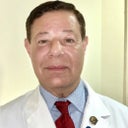Either this is a forum for the advocacy of consumers or it is not. Certainly there are post-surgical situations where the issues are not very significant and patients just need to have reassurance and follow up with the original surgeon is very appropriate. This may not be one of those circumstances. Advising you to follow up with your surgeon may be like advising an abused spouse to return to their abuser. Yes you have had an over aggressive blepharoplasty. I am not in the head of your surgeon. They obviously were concerned about getting you a result where you were not likely to have residual lateral hooding. My personal approach is to educate my patient about trade offs and I find it is better to do less than perform over aggressive surgery. It is far easier to take a bit more skin than to have to use a skin graft to deal with over-resection. Now if your relationship with your surgeon is basically ok, yes of course, follow up with your surgeon. On the other hand, if your surgeon has a circle the wagon mentality and they are telling you that you look "marvelous," when you are actually having a problem, it is very hard to trust that person. Your incisions are too high but recognize that some surgeon actually advocate this type of aggressive incision placement as a way to reduce the appearance of the lateral hood after surgery. Again I personally do not agree with this approach because, while it solves one problem, it makes many more problems. If you are having dry eye symptoms, seek management with an ophthalmologist who can actually examine the eye surfaces and recommend appropriate treatment. Generally it is best to let the eyelids heal 6 to 12 months before considering reconstructive surgery. However there are situations were earlier surgery is needed because medication such as drops, ointment and other measures are not compensating for the inability to properly blink and close the eyes. It is not possible to restore the natural upper eyelid fold that was removed by this surgery. It is not possible to restore the force of the blink mechanisms in the upper eyelid if it has been damaged by upper eyelid surgery. If you are short of skin and this is limiting the blink, then yes, skin grafting into the upper eyelid can be helpful but it is not cosmetically appealing. It is done to treat severe dry eye and the compromise in appearance is tolerated for the sake of comfort. This can be a very hard pill to swallow. For this reason, it is best to see what type of recovery you have simply medically managing the dry eye if this is possible and then deciding how to proceed. I am sorry you are in this situation and yes, there is real help out there.






